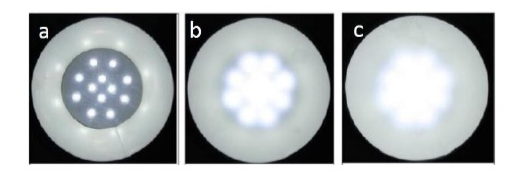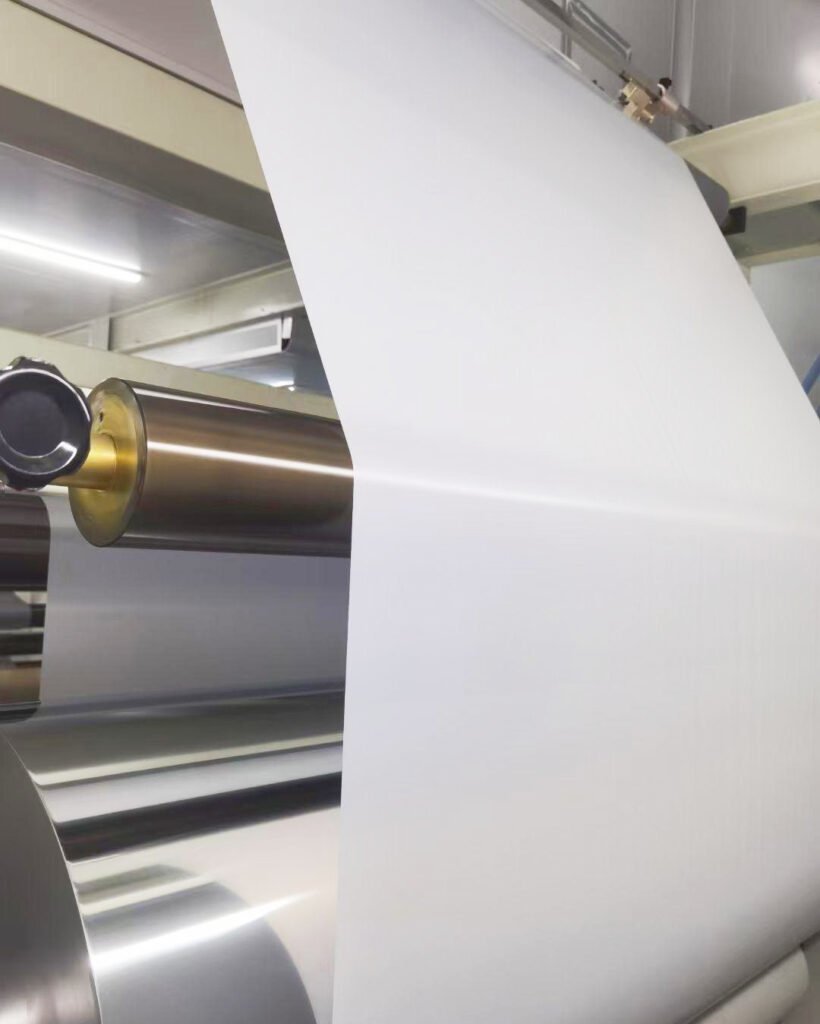The main function of the light diffusion film is to modulate the light intensity of the incident beam in space, that is through the reflection, scattering, refraction and diffraction of the light and the diffusion film, the diffused light field distribution that meets the requirements of a certain application can be obtained. Optical diffusion films are widely used in beam shaping, flat panel display technology (Flat panel display,FPD) and new solid-state lighting (including organic / inorganic light-emitting diodes, and photovoltaic devices).
In the field of display, flat panel display technology has developed rapidly in recent years. Liquid crystal display (Liquid crystal display, LCD) occupies the dominant position of flat panel display technology because of its light and thin, low energy consumption, low radiation, no need for high temperature and high pressure, and soft screen.
Figure 1-1 shows the application of LCD in smartphones, tablets, car displays, medical displays, and many other fields. At present, 1-2 diffusion films, namely lower diffusion film (Bottom Diffuser) and upper diffusion film (Top Diffuser), are needed in LCD backlight module. The lower diffusion film is close to the light guide plate, and its main function is to convert the non-uniform light source emitted by the light guide plate into a uniformly distributed surface light source, and to cover the printing dot of the light guide plate. The upper diffusion film is located on the uppermost side of the backlight module, which has the characteristics of high transmittance, large viewing angle, high uniformity, and can protect the prism film. In this way, after passing through the light guide plate, the light emitted by the lighting source is transformed into a uniform and soft surface light source through the light diffusion film, and finally enters people’s field of vision by using the focusing effect of the prism film. Nowadays, optical diffusion film is widely used by LCD manufacturers in the market. Common diffusion film indicators: upper diffusion film transmittance 90%, haze 29%; lower diffusion film transmittance 84%, haze 90%.

In the field of lighting, LED, as a new type of energy-saving lighting, has been widely used in traffic signals, projection light sources, automobile lighting and so on. Compared with ordinary light source, LED light source has the advantages of long life, low calorific value and brightness in the field of lighting. As a new type of energy-saving lighting, LED has been widely used in traffic signals, projection light source and automobile lighting. Compared with the ordinary light source, LED light source has the advantages of long life, low calorific value and brightness.

Beam shaping technology refers to changing the complex amplitude, intensity or phase distribution of the incident laser beam to the desired complex amplitude, intensity or phase distribution to achieve the purpose of beam shaping. Laser beam smoothing technology is the most commonly used beam shaping technology, that is, the laser beam spot is shaped into a square, circle or other shape with uniform intensity distribution. Dickey et al use microlens array to solve the problem of shaping multimode lasers [16]. Its working principle is to divide the superposition of the beam and the sub-beam, but this method also has some defects. The superposition of the sub-beam produces interference speckle on the target surface, which affects the shaping quality.
The holographic beam shaping diffusion film (Light Shaping Diffusers, referred to as LSD light diffusion film) has been developed by Luminit Company of the United States. The directional diffusion is realized by designing the surface structure. The LSD film with directional diffusion can be used in airborne laser detection and ranging systems, head-mounted displays, bar code scanners, biometric scanners, photocopier scanners, laser ophthalmic surgery and directional projectors.
At present, the practical application of optical diffusion film has been extended to energy, chemistry, medical and other fields, so it has aroused the interest of many scholars and industry people. In photovoltaic devices, J. Yoon et al coated a layer of silyl ester microcylindrical lens array film on flexible single crystal silicon-based solar cells, which increased the cell efficiency by 2.5 times. Wei et al. coated the surface of OLED with a microlens array film to improve the quantum extraction efficiency of OLED by more than 20%.
The flexible textile diffusion film provides appropriate radiation intensity for low dose photodynamic therapy (Photodynamic Therapy PDT). The rotating diffusion film is used to eliminate the composite spots in the tricolor liquid crystal silicon laser projector. The time-domain diffusion film-assisted imaging system realizes the examination of breast tumors and the monitoring of chemotherapy in clinical diagnosis. Optical sensors based on diffusion films are used to detect the volume fraction and composition of proteins. Therefore, the realization of the application target and multi-function of optical diffusion film is the direction of future research.

